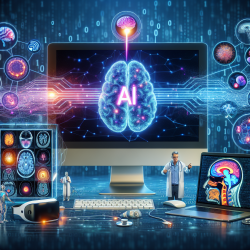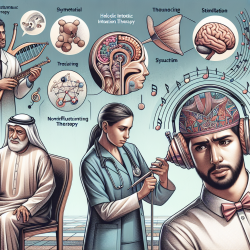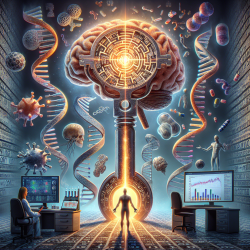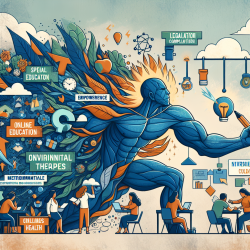Implementing AI and MRI Techniques in ASD Detection: A Review for Practitioners

In the evolving landscape of autism spectrum disorder (ASD) diagnosis, leveraging artificial intelligence (AI) techniques with MRI neuroimaging offers promising advancements. The review article titled "Automatic autism spectrum disorder detection using artificial intelligence methods with MRI neuroimaging: A review" provides an in-depth analysis of these methodologies. This blog post will distill key findings from the research, offering practical insights for practitioners seeking to enhance their diagnostic skills or engage in further research.
Key Findings from the Review
The review highlights the integration of AI techniques, specifically machine learning (ML) and deep learning (DL), with MRI modalities such as functional MRI (fMRI) and structural MRI (sMRI) for ASD detection. Here's a breakdown of the primary outcomes:
- Enhanced Diagnostic Accuracy: AI techniques, particularly ML and DL, have shown significant potential in improving the accuracy of ASD diagnosis. These methods can process vast amounts of neuroimaging data efficiently, identifying subtle patterns that might be missed by human analysis.
- Non-Invasive and Efficient: MRI modalities, being non-invasive, are preferable for continuous monitoring and early diagnosis. When combined with AI, the diagnostic process becomes faster and more precise, reducing the workload on specialists.
- Challenges and Future Directions: The review identifies challenges such as the need for large, diverse datasets and the development of multimodal diagnostic tools that integrate different neuroimaging techniques. Future research should focus on addressing these gaps to enhance the robustness and applicability of AI-driven diagnostic tools.
Practical Applications for Practitioners
For practitioners in the field of online therapy and special education, the following applications can be particularly beneficial:
- Adopting AI Tools: Incorporating AI-based diagnostic tools into practice can significantly improve the early detection and management of ASD. Tools that use ML and DL algorithms can analyze MRI data more effectively, providing valuable insights that aid in accurate diagnosis.
- Training and Development: Engaging in training programs that focus on AI and neuroimaging techniques can enhance a practitioner's ability to utilize these tools effectively. Continuous professional development in these areas will ensure that practitioners stay updated with the latest advancements.
- Collaborative Research: Practitioners are encouraged to participate in collaborative research efforts aimed at improving AI algorithms and developing comprehensive multimodal diagnostic tools. Such involvement can contribute to the collective knowledge and improve diagnostic practices across the field.
Encouraging Further Research
While the current AI and MRI techniques have shown promise, there is ample room for further research. Practitioners can contribute to this evolving field by:
- Conducting Case Studies: Implementing AI tools in real-world scenarios and documenting outcomes can provide valuable data that supports the refinement of these technologies.
- Exploring Multimodal Approaches: Researching the integration of various neuroimaging modalities, such as combining fMRI with EEG, can lead to more comprehensive diagnostic tools that offer a holistic view of ASD.
- Sharing Findings: Publishing research findings and participating in academic conferences can facilitate knowledge sharing and foster collaborative efforts to advance the field.
To read the original research paper, please follow this link:
Automatic autism spectrum disorder detection using artificial intelligence methods with MRI neuroimaging: A review.
Citation: Moridian, P., Ghassemi, N., Jafari, M., Salloum-Asfar, S., Sadeghi, D., Khodatars, M., Shoeibi, A., Khosravi, A., Ling, S. H., Subasi, A., Alizadehsani, R., Gorriz, J. M., Abdulla, S. A., & Acharya, U. R. (2022). Automatic autism spectrum disorder detection using artificial intelligence methods with MRI neuroimaging: A review. Frontiers in Molecular Neuroscience, 15, 999605. https://doi.org/10.3389/fnmol.2022.999605










